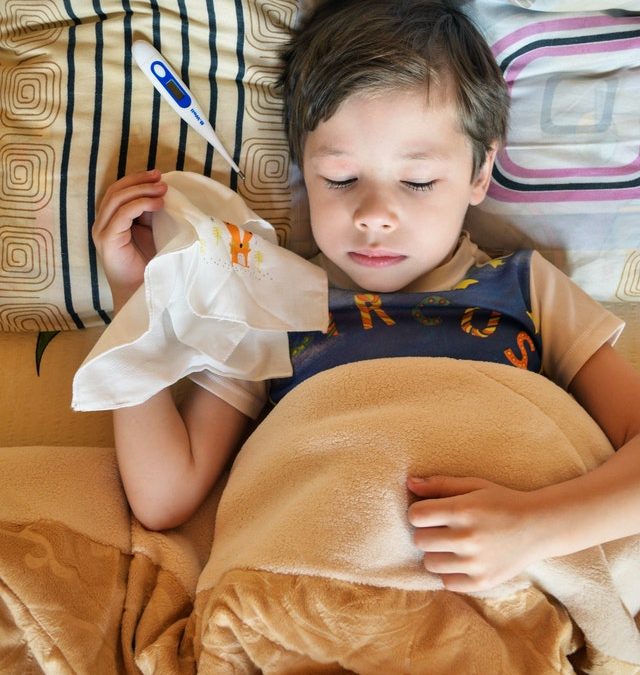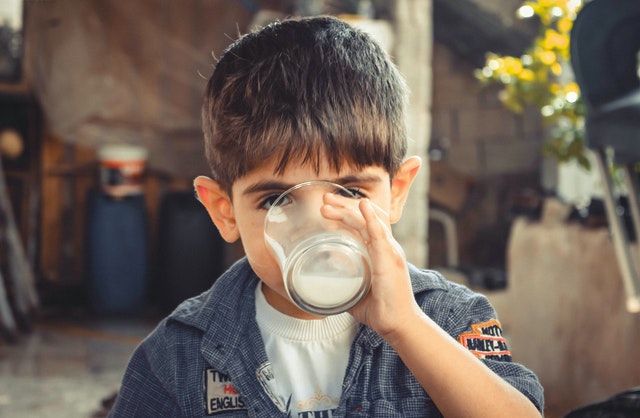Most parents know that when their child has diarrhea, they need to keep them hydrated. But what many don’t know is that there are ways to manage infant diarrhea at home without having to go to the doctor. In this blog post, we will outline some of the best methods for managing infant diarrhea so that you can get your child back on their feet as soon as possible.
What are natural remedies for diarrhea in babies?
infant diarrhea is a type of gastrointestinal upset that can occur in babies. It is characterized by watery, loose stools and can often lead to dehydration. Infant diarrhea can be caused by a variety of factors, including viral infections, food allergies, or changes in diet. While infant diarrhea can be uncomfortable for your little one, there are some natural remedies that may help to ease the symptoms.
One of the most effective home remedies for infant diarrhea is probiotics. Probiotics are live bacteria that help to promote a healthy balance of gut flora. They can be found in fermented foods such as yogurt or sauerkraut or in supplement form. Probiotics can help to reduce the duration and severity of infant diarrhea by restoring the balance of gut bacteria.
Another home remedy that may help infant diarrhea is chamomile tea. Chamomile has long been used as a soothing herbal remedy and can be helpful in treating infant diarrhea. The tea can be given to your baby in small sips throughout the day. It is important to make sure that the tea is completely cooled before giving it to your infant, as hot liquids can aggravate the symptoms of diarrhea.
If you are concerned about your infant’s diaper rash, there are some natural remedies that can help to soothe and heal the skin. Coconut oil or calendula ointment can be applied to the diaper area after each bowel movement. Both of these substances have natural anti-inflammatory properties that can help to ease the irritation caused by diaper rash.
Finally, it is important to make sure that your infant stays hydrated when they are suffering from diarrhea. Offer them small sips of water or an electrolyte solution throughout the day. If your infant is vomiting as well as having diarrhea, it is important to seek medical attention as dehydration can occur quickly.
While infant diarrhea can be unpleasant, there are some natural remedies that may help to ease the symptoms. Probiotics, chamomile tea, and coconut oil can all be helpful in treating infant diarrhea. It is important to make sure that your infant stays hydrated during this time by offering small sips of water or an electrolyte solution. If your infant is vomiting as well as having diarrhea, seek medical attention as dehydration can occur quickly.
Diarrhea can be caused by many different things, including infections, food intolerances, and medications. In infants, the most common cause is an infection of the gastrointestinal tract. This can be caused by bacteria, viruses, or parasites. Infections are more common in young children because their immune systems are not yet fully developed.
Food intolerances can also cause diarrhea, though this is less common in infants than adults. Some infants may have trouble digesting certain foods, such as dairy products or gluten, which can lead to diarrhea. Medications can also cause diarrhea as a side effect. If your infant is taking any medication, speak with your doctor about the possibility of diarrhea as a side effect.
There are a few alternative natural remedies that can help soothe your infant’s diarrhea as well. These include:
Breastmilk
If you are breastfeeding, continue to do so. Breastmilk is packed with nutrients and antibodies that can help boost your baby’s immune system and fight off the infection.
Probiotics
Probiotics are live bacteria that can help restore the balance of gut flora. They may be helpful in relieving symptoms of diarrhea and preventing future episodes. Look for a probiotic supplement that is specifically designed for infants.
Coconut water
Coconut water is a natural electrolyte drink that can help replenish fluids and minerals lost due to diarrhea. It is also gentle on the stomach and can help settle an upset tummy.
Clear liquids
If your infant is old enough, offer clear liquids such as water, unsweetened Pedialyte, or diluted fruit juices. These will help keep your baby hydrated and may help to ease diarrhea symptoms. Avoid sugary drinks or those with artificial sweeteners as these can make diarrhea worse.
If your infant’s diarrhea persists for more than a few days, is accompanied by a high fever, or has blood in it, contact your pediatrician. These could be signs of a more serious condition and require medical treatment.
What is the best way to replace lost fluids in infant diarrhea?
Infant diarrhea is a condition of having three or more loose or watery stools per day. It is often accompanied by dehydration, which can be dangerous for infants. The best way to replace lost fluids in infant diarrhea is with an oral rehydration solution (ORS).
ORS contains salt, sugar, and other electrolytes that help the body absorb water and replace lost fluids. It is important to give ORS slowly, in small amounts, frequently throughout the day. If your infant has diarrhea and is dehydrated, contact your healthcare provider. They will likely recommend giving an ORS as well as other treatments.
When giving your infant an ORS, it is important to start with small amounts and gradually increase as tolerated. If diarrhea is severe, it may be necessary to give the ORS through a nasogastric (NG) tube. This can be done by a healthcare professional, or you can learn how to do it yourself.
Dehydration can cause serious complications, so it is important to seek medical help if your infant is not able to keep down fluids or appears to be dehydrated.
What medicine is safe to give to my baby with diarrhea?
If your baby has diarrhea, it is important to talk to your doctor before giving them any medication. This is because some medications may not be safe for young children.
There are a few different options for diarrhea medicine that are safe for babies. One option is loperamide, which can help to decrease the amount of water in the stool. Another option is bismuth subsalicylate, which can help to reduce diarrhea symptoms.
It is important to make sure that you follow the instructions on the diarrhea medicine label carefully. You should also give your baby plenty of fluids to prevent dehydration. If your baby’s diarrhea does not improve after a few days, or if they become dehydrated, it is important to call your doctor.
Which antibiotic do I give for infant diarrhea?
There are a few different antibiotics that can be used to treat infant diarrhea, depending on the cause. If the diarrhea is due to a bacterial infection, then an antibiotic like amoxicillin may be prescribed. If the diarrhea is due to a viral infection, then an antibiotic may not be necessary.
In some cases, probiotics may also be recommended along with antibiotics to help restore the balance of good bacteria in the gut. Ultimately, it is best to speak with a doctor to determine which antibiotic, if any, is best for your child’s specific situation.
When should I take my child with diarrhea to the hospital?
If your child has diarrhea, it is important to watch for signs of dehydration. Dehydration can occur when a person loses too much fluid from their body. Symptoms of dehydration in children include:
Dry mouth and tongue
No tears when crying
Sunken eyes
Few or no wet diapers in infants
Dry skin
Lethargy or irritability
If your child is showing any of these symptoms, it is important to take them to the hospital right away. Dehydration can be very serious, and even life-threatening. Treatment for dehydration will usually involve fluids being given through an IV. So if you think your child may be dehydrated, don’t wait – take them to the hospital as soon as possible.
How long does diarrhea in infants last?
Infant diarrhea is a common occurrence in infants and usually lasts for a few days. Most cases of diarrhea are mild and self-limited, meaning they will go away on their own without any treatment. However, diarrhea can sometimes be more severe, lasting for weeks or even months. In these cases, it is important to seek medical care to make sure diarrhea does not lead to dehydration or other serious complications.
How can I prevent my child from getting diarrhea?
There are a few things you can do to help prevent your child from getting diarrhea:
Encourage your child to wash their hands regularly, especially before eating. This will help to remove any bacteria that could cause diarrhea.
Make sure that your child is eating a balanced diet that includes plenty of fruits, vegetables, and whole grains. These foods contain important nutrients that can help boost the immune system.
Avoid giving your child sugary drinks or processed foods as these can make diarrhea worse.
If your child has diarrhea, make sure they drink plenty of fluids to avoid dehydration. Offer them water, clear soup, or oral rehydration solutions. Avoid giving them fruit juices or soft drinks as these can make diarrhea worse.
If your child’s diarrhea is severe or lasts more than a few days, you should take them to see a doctor. Severe diarrhea can lead to dehydration, so it is important to seek medical attention if your child is not drinking enough fluids or if they are showing signs of dehydration (such as sunken eyes, dry mouth, or no wet diapers for several hours).
How do I prevent my other children from getting diarrhea?
If your child has diarrhea, it is important to take measures to prevent the spread of the illness to other members of your household, especially if other children are present. The following tips can help you keep diarrhea from spreading:
Wash your hands thoroughly and often, using soap and water, especially after changing diapers or using the bathroom.
Keep toilet facilities clean. If possible, have each member of your household use a separate bathroom.
Wipe down surfaces that have been contaminated with diarrhea, using a bleach-based cleaner.
Avoid sharing towels, dishes, or eating utensils with others in your household.
Launder soiled clothing and bedding immediately.
If possible, isolate yourself and your child from other members of the household until diarrhea has resolved.
Conclusion
Managing your infant’s diarrhea at home can be a daunting task, but with the right information and help, you can do it. If you’re not sure where to start or need some guidance on what to do, our online pediatrician clinic is available to help. We have experts who can answer your questions and provide advice on how to best manage your infant’s diarrhea. Visit our Online Child Care Clinic today for more information.
BLOG AUTHOR
Dr. Ismail Sayeed
Dr. Sayeed is the Medical Director of ViOS, Inc. He is a deeply committed physician entrepreneur & medical blog writer. While building the global infrastructure of the VIOS Clinic, he is dedicated to educate people on the potential of specialist telemedicine for managing chronic diseases.
Read more about him in his author bio


